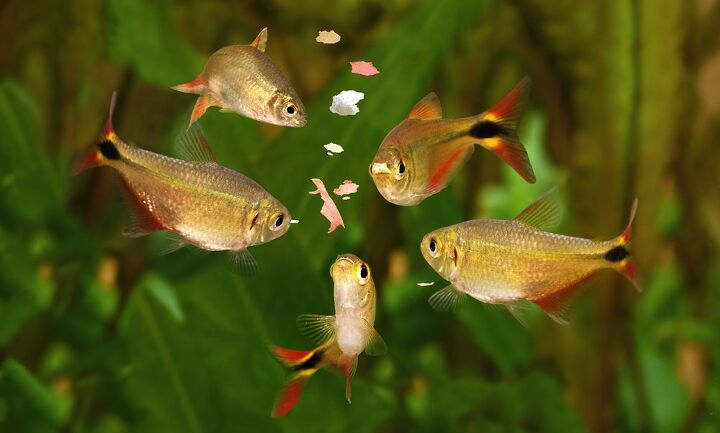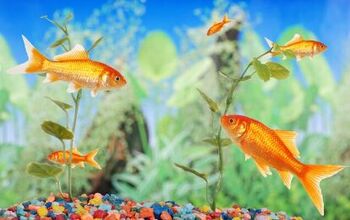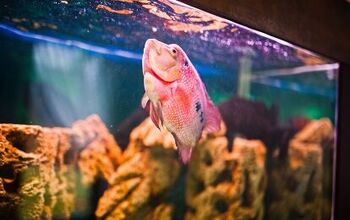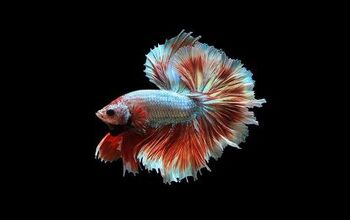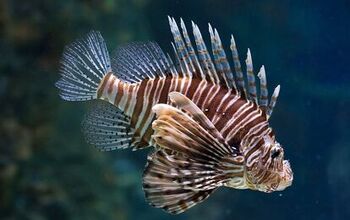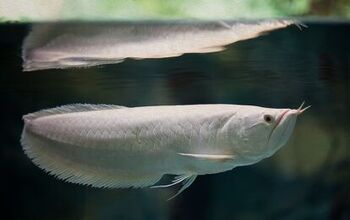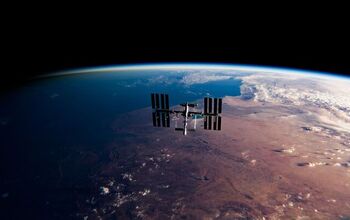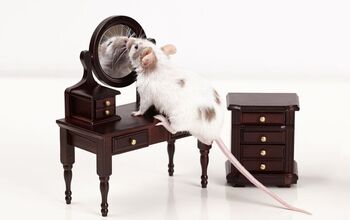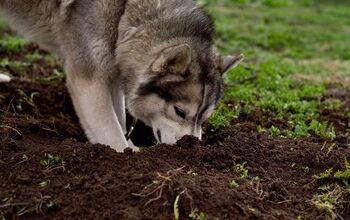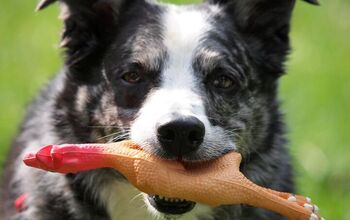Best Fish Food for Aquarium Fish

What do you plan to feed your fish? If you’re just starting out with a tank, you’ll want to choose the best fish food for aquarium fish.
There are hundreds of species of aquarium fish, and each of them has its own unique nutritional needs. Some aquarium fish are herbivorous, requiring a plant-based diet while others are carnivorous or omnivorous. Before bringing home any aquarium fish, you need to take the time to learn everything you can about that species to ensure that you can meet its needs, including its needs for a healthy diet.
Choosing the best fish food for aquarium fish is all about knowing what kind of diet your fish need. From there, you can shop products from reputable brands that are made with high-quality ingredients. Keep reading to learn some tips for feeding aquarium fish and to see our top picks for the best fish food.
Related: Our Guide to the Best Nano Tanks
Top Fish Food for Aquarium Fish
It is your job as a responsible aquarium hobbyist to know which type of diet your fish need. With this information in mind, you can make a smart choice from the best fish foods we’ve compiled below.
Here are our top picks for aquarium fish food:
New Life Spectrum Thera+A Pellets
New Life Spectrum Thera+A Pellets – These 1mm sinking pellets are made with high-quality natural ingredients and formulated to provide for the nutritional needs of most fish, both freshwater and saltwater. With high nutrition density, this formula will help your fish reach their maximum potential for health and color.
Hikari Tropical Semi-Floating Micro Pellets
– Smaller tropical fish do well with semi-floating foods like these because some fish like to feed at the surface and others like to eat as the food starts to sink. These semi-floating pellets are packed with protein and essential minerals, formulated to meet the needs of most smaller tropical fish.
Omega One Veggie Rounds
– Herbivorous fish require a plant-based diet and these veggie rounds are a great option. Made from whole fresh seafood, these rounds are rich in omega-3 and omega-6 fatty acids and contain naturally occurring pigment to support bright coloration.
Hikari Bio-Pure Freeze-Dried Blood Worms
– Whether you’re looking for a treat to offer omnivorous fish or something to nourish your carnivores, these freeze-dried blood worms are a nutritious and protein-rich option. They are guaranteed to be free from parasites and harmful bacteria, so you can feel good about feeding them to your fish.
Tetra TetraCichlid Cichlid Flakes
– Cichlids are one of the largest families of fish and they have unique nutritional needs. These flakes are properly formulated for all cichlids and are enhanced with essential nutrients to support balanced health.
hygeer Tropical Fish Food
– This scientifically formulated fish food from hygeer is perfect for small to medium tropical fish including betta fish, barbs, guppies, angelfish, loaches, tetras, and more. They are packed with animal and vegetable nutrients including fish, krill, squid, spiraling, yeast, and astaxanthin that tropical fish need to grow, stay healthy, and continue to look vibrant. The hygeer Tropical Fish food also contains vitamins and minerals like protein, fiber, fats, calcium, and moisture that support a healthy immune system for your fish.
Unlike other brands of fish food, the hygeer Tropical Fish food doesn’t create murky waters. It is semi-floating so it will stay at the top for your surface eaters and slowly go to the bottom for the middle and bottom feeders. It is easy to digest for your fish as well. The flakes are naturally colored with carotene, spriunlina, and astaxanthin to help keep your fish looking vibrant and colorful as well.
Zoo Med Spirulina 20 Flakes
– Ideal for herbivorous freshwater or saltwater fish, these spirulina flakes are packed with protein. Made with high-quality, natural ingredients, these flakes support balanced nutrition and natural color enhancement.
New Life Spectrum Marine Fish Formula
– Marine fish have different nutritional needs than freshwater fish, and this New Life Spectrum formula is designed specifically for saltwater species. It is made from natural ingredients and formulated to support healthy nutrition and bright coloration.
Hikari Algae Wafers
– These sinking wafers are ideal for bottom feeders like Plecostomus but may also be enjoyed by omnivorous fish. They are made from pure-cultured spirulina, a rich source of vegetarian protein, and supplemented with essential nutrients as well.
Omega One Shrimp Pellets
– Made with 100% food-grade shrimp and enriched with natural color enhancers, these shrimp pellets are ideal for both freshwater and saltwater fish. They contain no meals, digests, or other unhealthy ingredients and they are guaranteed not to cloud your tank water.
Tips for Feeding Aquarium Fish
In the wild, fish will feed when they are hungry and when food is available. As you can imagine, that might mean that they eat several times a day or they might not eat for several days at a time. In the home aquarium, it is best to stick to a regular schedule for feeding your fish and to choose the diet that is best for the type of fish you have in your tank.
Here are some general tips for feeding aquarium fish:
- Know what kind of diet your fish require. Do a little basic research to find out what kind of food the fish need and how best to offer it.
- Feed your fish no more than twice a day. Most fish do well with a single daily feeding, but some herbivorous fish like mollies and silver dollars need to eat more often.
- If you have nocturnal fish in your tank, be mindful of when you feed them – it is best to feed them just before turning out the light for the night.
- Offer your fish no more than they can consume in about 5 minutes. Over-feeding your fish means that most of the food will end up sinking to the bottom of the tank where it will decompose and affect the tank water quality.
- Stick to a balanced staple diet for your fish (such as a balanced herbivore pellet for herbivores) and supplement it with small amounts of fresh foods several times per week.
- When feeding fresh foods and types of food that dissolve (like algae wafers), remove the uneaten portion after 30 to 60 minutes so it doesn’t dirty the tank.
Remember, the more you feed your fish the more waste they will produce. In an enclosed environment like your fish tank, wastes can decompose quickly and change the water chemistry in your tank. Avoid overfeeding your fish to keep the conditions in your tank clean and healthy.
It is important to remember that most fish eat small amounts at a time – especially when compared to larger pets like cats and dogs. Avoid buying fish food in bulk because you are unlikely to use it all before it starts losing its nutritional value. Buy small quantities and keep it fresh so your fish gain the maximum benefit from what you’re feeding them.

Kate Barrington is the loving owner of two cats (Bagel and Munchkin) and a noisy herd of guinea pigs. Having grown up with golden retrievers, Kate has a great deal of experience with dogs but labels herself a lover of all pets. Having received a Bachelor's degree in English, Kate has combined her love for pets and her passion for writing to create her own freelance writing business, specializing in the pet niche.
More by Kate Barrington



